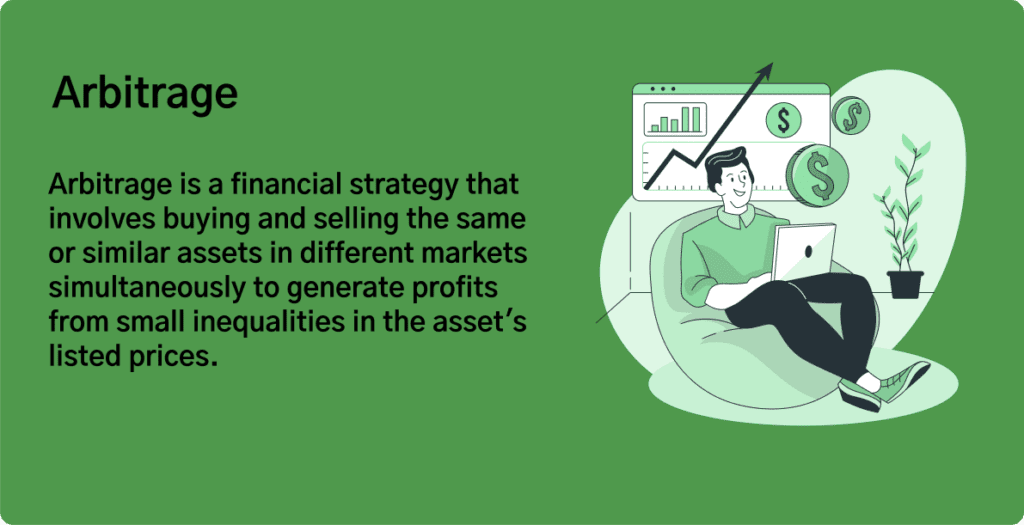What Is Arbitrage? Arbitrage Definition & Meaning
Arbitrage
Arbitrage in 3PL involves leveraging cost differences in shipping, warehousing, and fulfillment to maximize efficiency and profit. By optimizing carrier rates, regional storage costs, and last-mile delivery, 3PL providers can reduce expenses while ensuring fast, reliable service.

Arbitrage is the practice of exploiting price differences across markets or platforms to generate profit by buying and selling assets, securities, or goods.
Arbitrage Meaning
Arbitrage is a financial strategy that capitalizes on pricing inefficiencies in different markets. It involves simultaneously buying and selling the same or related assets to profit from price variations, often with minimal risk when executed efficiently.
Who Are We?
FulfillMe is a technology-driven 3PL that helps eCommerce brands scale by offering seamless order fulfillment, warehousing, and shipping solutions. We provide end-to-end fulfillment services tailored to retailers and manufacturers, ensuring faster delivery, lower costs, and optimized inventory management. If you’re looking for a fulfillment partner to support your growth, reach out to us today.
What Do I Need to Know About Arbitrage?
Market Discrepancies: Arbitrage relies on identifying price differences for identical or related assets across markets.
Simultaneous Transactions: Successful arbitrage involves executing buy and sell orders at the same time to capture fleeting price gaps.
Risk Mitigation: While often low-risk, arbitrage success depends on market conditions, execution speed, and transaction costs.
Types of Arbitrage: Common types include spatial arbitrage (exploiting regional price differences) and temporal arbitrage (capitalizing on price changes over time).
Financial Markets: Arbitrage plays a key role in stocks, forex, commodities, and cryptocurrency markets, enhancing liquidity and market efficiency.
Looking for a Smarter Fulfillment Solution?
Talk with FulfillMe today. A fulfillment expert will get back to you within 1-2 business days.
Why Arbitrage Matters
The success of arbitrage depends on speed and accuracy in identifying price inefficiencies. Many traders use advanced algorithms and high-frequency trading systems to seize these short-lived opportunities. However, arbitrage isn’t risk-free—factors like market fluctuations, transaction fees, and regulations can impact profitability, making a strategic approach essential.
Is Arbitrage Legal?
Yes, arbitrage is legal in the U.S. and is considered beneficial for market efficiency. Arbitrage traders help improve liquidity by narrowing price gaps across markets.
What Are the Risks of Arbitrage?
While often low-risk, arbitrage can be affected by sudden market changes, hidden costs, and regulatory restrictions. A thorough understanding of market dynamics is key to success.



